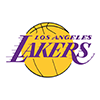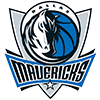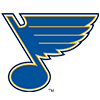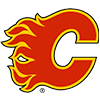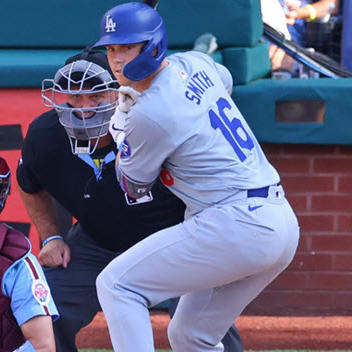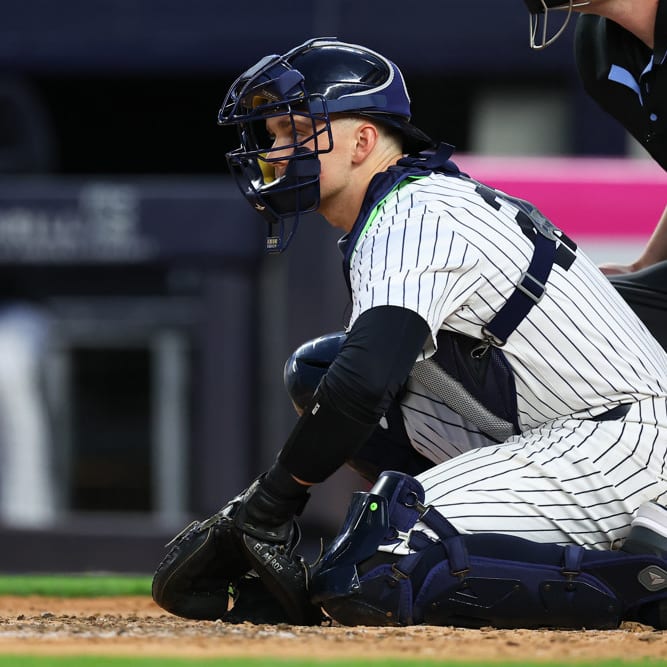He even had great peripherals (8.38 K/9, 1.98 BB/9, 2.91 FIP) to back up the surface statistics and cemented his status as one of the game's best groundball pitchers.
It was easy to think he'd come close to repeating them in 2016.
So much for that idea.
His body and skills collapsed last season on the way to a 4.55 ERA, 1.29 WHIP, 7.71 K.9 and 2.57 BB/9, all significant drops, before being shut down in late August with shoulder issues that fueled most of that disappointment.
Can the southpaw return to his recent elite levels?
Houston, We Have A Problem
Fantasy drafters were warned not to buy too strongly into that 2015 performance, despite how legit it looked. A recent tidbit offers 20-20 hindsight on why they shouldn't have.
Keuchel admitted he attempted to pitch through shoulder discomfort – specifically rotator cuff inflammation – tracing back to last spring training.
It was obvious he was hindered: He lost more than 1 mph on his four-seam fastball (88.3 mph last year) and nearly 1 mph on his vital two-seamer (88.6). When someone who's already not a flame-thrower loses some juice, he needs to be nearly perfect with his pitches.
His imperfections led to opponents knocking him around at a career-high 29.8 percent hard-contact rate. This helped explain why his BABIP jumped to .304 after the .269 the previous year. That might've been his flukiest stat, especially since groundball arms typically keep high versions of that stat.
Combine that BABIP jump with an utter erosion of his left-on-base percentage (a well below average 68.4 percent), and more runs were coming across on his watch.
The biggest revelation of his 2015 was his massive jump in strikeouts, but that came back to earth last year for several reasons. The biggest? He struggled to match the amount of called strikes from the previous year.
As Fangraphs' Dave Cameron put it last year:
Notably, one of the main things that allowed Keuchel to become a dominant pitcher was his ability to command pitches at the bottom of the zone, which is why he was able to run high O-Swing rates even while rarely throwing strikes. No one in baseball got more called strikes on pitches out of the zone last year, and that expanded zone allowed him to regularly pitch ahead in the count even though he had one of the lowest Zone% rates in all of baseball. Keuchel essentially lived on the edge of the zone, and after umpires kept giving him calls on the bottom edge, hitters adjusted by going after pitches that they couldn't really square up.By season's end, that didn't hold up:
| YEAR | Zone% | oTkS% | oSw% |
| 2015 | 40 | 11.8 | 33 |
| 2016 | 43 | 8.9 | 31 |
The oTks% rating notes pitches outside the strike zone that were taken for a strike. That's a huge drop – nearly three percent, and it informed the drop in the rate at which opponents swung outside the zone (oSw%).
When Keuchel lost his ability to paint, he had to challenge in the zone more, and his stuff wasn't up to par, thanks to his ongoing shoulder issues.
Want more evidence the soft-tosser became predictable? Remember that hard-contact surge, but add to that his drop in infield flyball percentage (12.0 to 10.7) and the surge in HR/FB (16.4 percent from 13.6).
Opponents squared him up with ease.
Can Dallas Cowboy Up?
Let's start this section off with a giant two-word phrase: if healthy.
With that out of the way, an active Keuchel remains in a sound place to bounce back.
• His 2016 FIP was 3.78 – not great, but also notably better than his ERA.
• Keuchel's first-pitch strike percentage (63.3) was better than 2015 (61.3), so his approach remains sound, despite his drawbacks with working the corners.
• It may hurt on the surface that expert pitch-framer Jason Castro left for the Twins. But despite their success together in 2015, Castro failed to help Keuchel much in 2016 (5.35 ERA, 2.81 K/BB, .767 OPS). Keuchel enjoyed his nine starts with Gattis more (2.59, 3.79, .642). To replace Castro, Houston traded for Brian McCann, who ranked sixth among catchers in Runs Above Average last year (minimum 6000 pitches). It's a solid replacement.
Injury Update
Offseason rest has helped Keuchel ease the shoulder issues. He's thrown several bullpen sessions and at least has a better idea of how to manage his body and report pain.
Final Word
Rational fantasy players will look for continued updates on his shoulder -- as close as possible to their draft day -- before setting a true price on him.
Shoulder issues will mar the potential of any pitcher, but as it works with any risky player, the draft board could dictate how much he returns based on his price.
Mixed players can take a stab at him as their fourth starting pitcher, give or take the depth of the league. He is after all just one year removed from that masterful season, and his skill set when his body is right sets him up to generate a lot of weak contact and, to some degree, helpful strikeouts.
The easiest explanation for a healthy Keuchel will be to split the difference between 2015 and 2016 to expect a solid, if not spectacular, 2017 – something around a 3.50 ERA, 7.50 to 8.00 strikeouts per nine, and a walk rate hovering around 2.00 per nine.
A spot as the 36th pitcher taken on average so far in NFBC drafts – though perhaps not as high as that 145.24 ADP (as of Feb. 23) – is a sound ranking at the position, balancing his immediate risks with a high ceiling that he's already accomplished.












